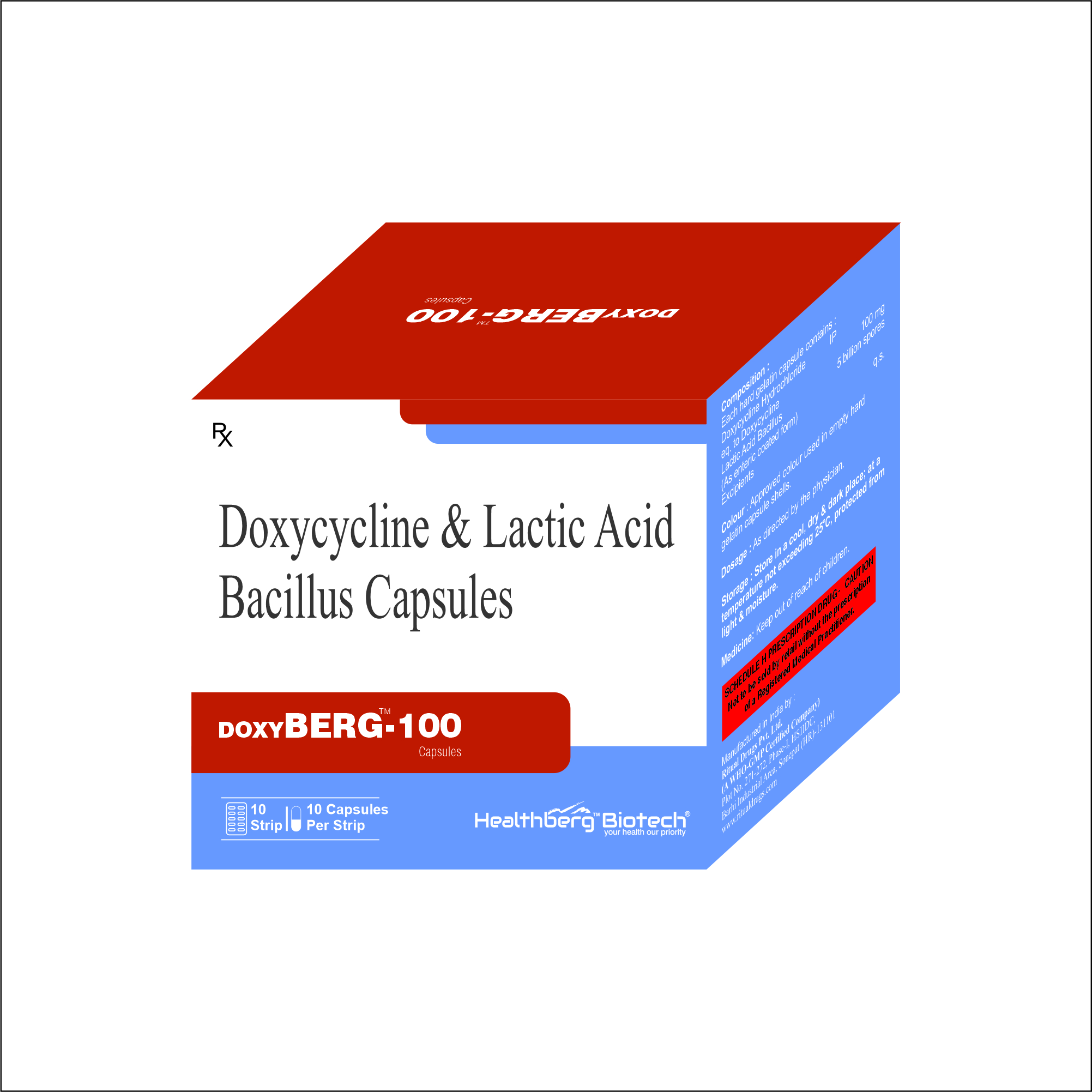
| Formulation | DOXYCYCLINEHYDROCHLORIDE 100 MG & LACTIC ACID BACILLUS 5 BILLION SPORES | |
| Packaging | 10X10 BL. | |
| MRP | ||
| Tax Bracket | ||
| Indicated By | ||
| Marketing Material | Visualaids, Branded Stationary, MR Bags, Prescription Pads etc |
This combination consists of an antibiotic, doxycycline hydrochloride, and a probiotic, lactic acid bacillus. It’s used to treat bacterial infections while also supporting gut health by introducing beneficial bacteria. Let’s explore its uses and potential concerns.
Doxycycline Hydrochloride: Doxycycline is an antibiotic belonging to the tetracycline class. It’s commonly prescribed to treat various bacterial infections, including respiratory tract infections, urinary tract infections, skin and soft tissue infections, and certain sexually transmitted diseases.
Lactic Acid Bacillus (Probiotic): Lactic acid bacillus is a probiotic, which means it contains beneficial bacteria that can help maintain a healthy balance of gut flora. Probiotics like lactic acid bacillus can support digestion, boost the immune system, and prevent the overgrowth of harmful bacteria in the gut.
Uses:
Problems and Concerns:
Consultation with Healthcare Provider:
It’s important to consult a healthcare provider before taking this combination, especially if you have any underlying health conditions, are pregnant or breastfeeding, or are taking other medications. The decision to use antibiotics and probiotics should be based on the specific condition being treated, potential benefits, and possible risks. If you experience any adverse effects or concerns while using this combination, seek medical advice promptly.
There are no reviews yet.